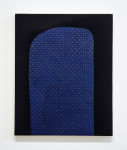p. 17: “subtlety” misspelled
p. 20: “whom he said was not remotely a billionaire,” should be “who”
“by definition, presidential,” remove comma
p. 28: “distress debt,” should be “distressed”
p. 30: “whom he believed had promised,” should be “who”
p. 31: “It was his daughter-in-law who held the real influence in the Trump circle, who delivered,” comma after “daughter-in-law”
p. 32: “Breitbart Embassy that doubled,” should be comma which
p. 45: “belied” misspelled
p. 54: “only the most hard-hearted reader would not entertain a daydream in which he or she was not part of this awesome pageant,” extra “not”
p. 56: hyphenate “midnineties”
p. 58: “conservative books products and media,” repair “books products”
“documentaries In the Face of Evil,” comma after “documentaries”
“albeit still just a small part,” “albeit still” is redundant
“build a radical free market, small-government,” comma after “radical”
“self-funding whatever Tea Party or alt-right project,” delete “self”
p. 70: “about which nothing in Kushner’s previous background would have prepared him for,” “about” and “for” inconsistent
“whomever could placate or distract him,” should be “whoever”
“within a few months, they had become a torturous duty,” delete comma
p. 71: “but rather more just someone’s presence,” cut “rather more just”
p. 76: “always aware and yet never understanding why they should be the butt,” add “always aware they were and yet…”
p. 98: “with quite some self pity,” cut “quite”
p. 99: “The New Republic,” italicize The
p. 101: repeats that FBI was trying to turn Page
p. 108: “Nearly all meetings in the Oval with the president were invariably,” cut either “nearly all” or “invariably”
“invariably” repeats
p. 127: “reverse martyrdom,” cut “reverse”?
p. 136: “denegation,” correct word?
p. 162: “Tea Party–Bannon–Breitbart,” and elsewhere, en-dash should be hyphen
“Ryan’s political abilities, and,” cut comma
“Ryan was still, and by then the only, alternative to Trump,” needs to be “Ryan was still an alternative to Trump, and by then the only one”
p. 163: “satisfy” repeats
p. 164: “he would have been able to enumerate few of the particulars of Obamacare—other than expressing glee at the silly Obama pledge,” cut “expressing glee at”
p. 182: “hone in on,” should be “home”
p. 186: “needed” should be “needs”
p. 187: “seeing Powell as less a normalizing influence than another aspect,” “as less” should be “less as”
“they were allied to them,” fix
“were in de facto command whenever they wanted to exert it,” replace “to exert it” with “to be” (cut “de facto”?)
p. 191: hyphenate “decision-maker”
p. 203: “de Vil–length,” hyphen, not en-dash
p. 205: “had yet failed to happen,” insert “as”
p. 213: “they were smarter than him,” sigh
p. 214: end of para “One Monday morning,” repeats itself
p. 217: hyphenate “coconspirators”
p. 230: comma after “alternate universe”
“worth of American arms,” delete comma after “arms”
p. 232: “emperors-new-clothes,” apostrophe in “emperors”
p. 233: “a little marketing savvy and has a look,” should be “has a little marketing savvy and a look”
p. 237: delete close-peren after “title”
p. 239: “be careful who you spoke to,” whom
p. 240: Sentence beginning “Bannon observed” has two extra commas
p. 243: “prone to self-sabotaging his ability to function in the job,” cut “his ability to function in the job”
p. 245: “defensive tweets and statements, and,” cut comma
p. 248: “regard” repeats
“cheapness and lack of generosity,” redundant
“the failure of people whose embrace he sought to, in return, embrace him,” cut “in return”
p. 249: “with certain satisfaction,” insert “a”
p. 252: “Trump, not unusually for a family-run company,” Trump is not a company
p. 253: comma after “urging”
pp. 253-254: last para, “case” repeats
p. 255: “Manafort and Kusher need to show,” should be “needed”
“a year later, pratically nobody,” cut comma
pp. 255-256: “repeated denials about there having been no discussion,” “no” should be “any”
“the Russians connected to the Kremlin,” cut “the” in “the Russians”
“his public position was not only endangering himself,” should be “endangering not only himself”
“distress debt,” should be “distressed debt”
p. 257: “far more details,” “far” should be “many”
p. 261: “demanding to know who she worked for,” whom
p. 271: “laid at the president’s feet … now put at Spicer’s feet,” repetition
p. 272: “understood that in her official role,” comma after “that”
“comm staff,” should be “comms” (consistency)
p. 276: “with a quite a cackle,” cut “a”
p. 279: “Don Junior,” ff, should be “Jr.” (consistency)
p. 280: “trace a money trail through Paul Manafort,” etc., repeats p. 278
p. 307: “figure of ever increasing incredulity,” misuse of “incredulity”
p. 310: “whacky,” wacky pref.
Overused words/terms: joie de guerre, curiously, precipice











